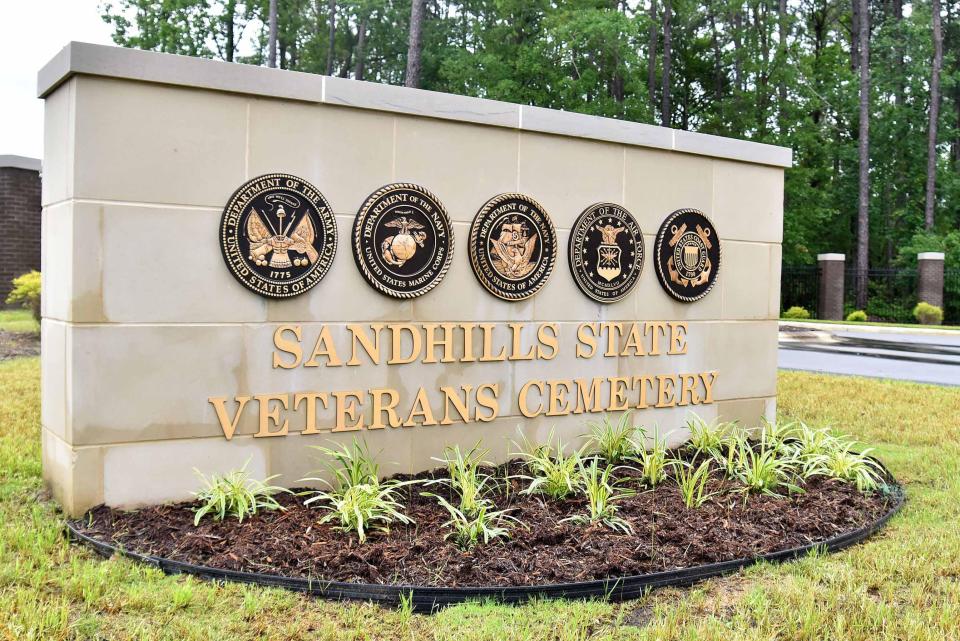How the North Carolina General Assembly could help veterans, military families
While the North Carolina General Assembly has yet to pass its annual budget, the latest House version includes provisions that could impact veterans and military families.
Meanwhile, other bills have appeared to stall in committee meetings.
The state legislature usually passes the budget by July 1.
Here’s a look at what could affect the local military-connected community and what may hold off until another session.
Proposed budget
According to House version of the budget, Sandhills State Veterans Cemetery in Spring Lake could receive $300,000 to be used to contract with businesses to improve the appearance of the cemetery and for services that include grounds maintenance, equipment maintenance and headstone marker operations. The House version passed in April and is still being hashed out as it’s being reconciled with the Senate.
Meanwhile, House Bill 178 proposed all four of the state’s veteran cemeteries be staffed with employees to “maintain the cemeteries in a manner that honors the state’s veterans and their families,” and correct issues tied to delays in installing headstones or damaged headstones, along with grounds maintenance. The bill passed three revisions and was referred to the Senate Committee on Rules and Operations on May 4.

Homeless veterans
The North Carolina Department of Military and Veterans Affairs could stand to receive more than $13.2 million, while $10 million is being proposed for the department to administer a grant program to address homelessness and housing instability in the state’s veteran population.
The department would be required to consult with the N.C. Govenor’s Working Group, which includes veterans, service members and their families, to establish eligibility of applicants for the grants.
The proposed budget states that grants would be awarded to existing community-based programs “with a proven track record of providing direct services to veterans to help reduce homelessness and housing instability." Priority would be given to organizations that help veterans move into stable or permanent housing and provide education, workforce training, substance abuse treatment or mental health treatment.
The proposed budget also recommends $3 million be directed to the nonprofit Purple Hearts Home Inc. “to provide personalized housing solutions for service-connected disabled and aging veterans and their families across the state” and $1.5 million to be a direct grant to the nonprofit Military Missions "to provide support to veterans who need construction project assistance due to disabilities or substandard living conditions and to homeless veterans.”
Attempts for veteran property tax credits
As in prior years, there are several proposed bill to provide property tax credits to veterans that have not moved past committees.
• House Bill 37 proposed expanding the disabled veteran property tax homestead by excluding taxing primary residences and reimbursing local governments for that revenue loss. The bill has been stuck in committees since February.
• House Bill 489 and Senate Bill 149 proposed excluding the first $45,000 of appraised value of a disabled veteran’s home from being taxed. The bill has been stuck in committee since March.
• House Bill 594 passed committees in April and May before being referred May 3 to the Senate Committee on Rules and Operations.
The bill proposed allowing disabled veterans to prequalify for a disabled veteran property tax homestead exclusion.
Bills stuck in committees
Other military-related bills that have been stuck in committees include:
• A bill that would have deducted the first $6,000 enlisted service members receive in basic pay from North Carolina’s income tax.
• A bill that would have given caregiver tax credit to families of veterans.
• A bill that would have directed the Department of Health and Human Services to consult with the Department of Military and Veterans Affairs to study health issues affecting women who serve in the military.
Staff writer Rachael Riley can be reached at rriley@fayobserver.com or 910-486-3528.
This article originally appeared on The Fayetteville Observer: What military related bills may or may not pass the N.C. legislature

